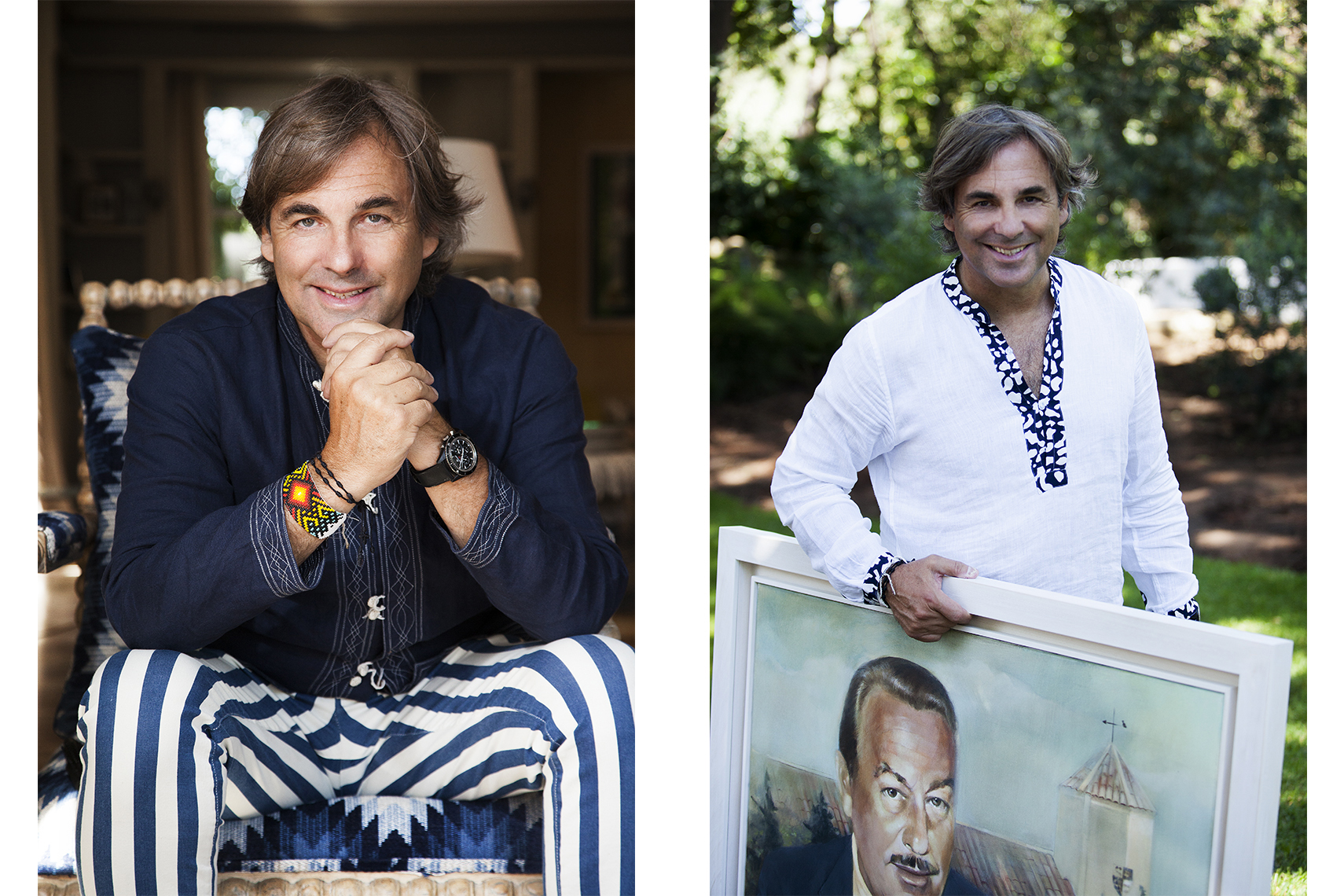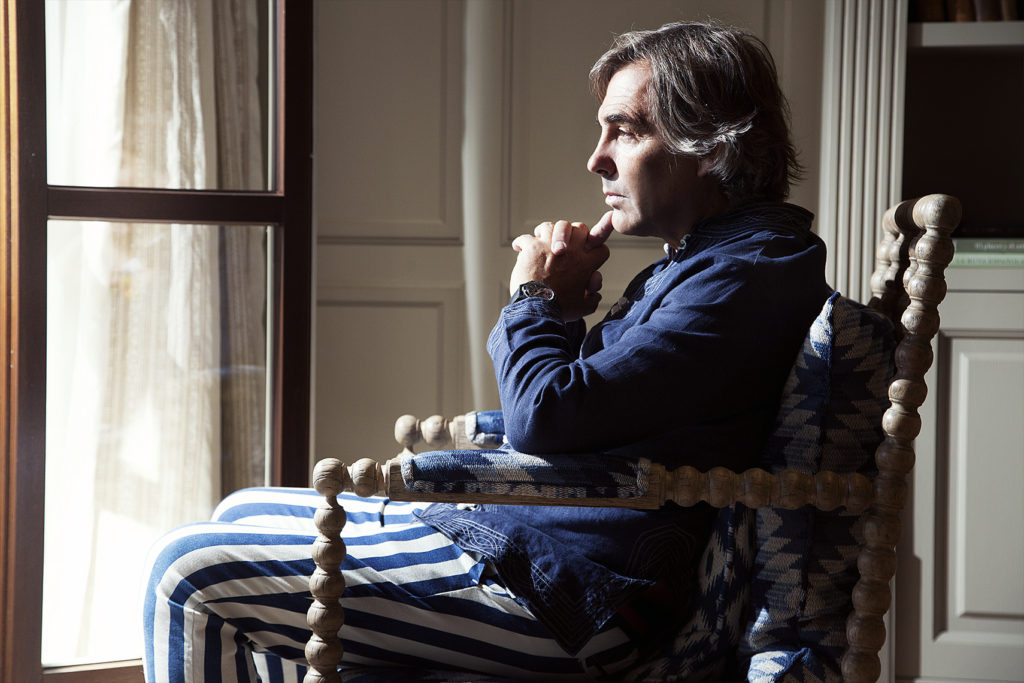“AMATEUR OR PROFESSIONAL, BOTH ARE CAPABLE OF GREAT OR TERRIBLE PICTURES. THAT’S NOT THE DIFFERENCE. THE DIFFERENCE IS THAT THE PROFESSIONAL PHOTOGRAPHER PAYS HIS BILLS FOR THE MONEY HE MAKES FROM PHOTOGRAPHY, HE LIVES FROM PHOTOGRAPHY.”
These were the words of my admired Natalia Taffarel, in one of the digital retouching and postproduction workshops that she gives all over the world and which I was able to attend in Madrid. This phrase serves me to introduce what this post will talk about, the experience of being a professional photographer and how to face an assignment for an international publication, my client Sette HauteStyle Magazine
Because if I didn’t have a background, a career behind me and the know-how to deal with thousands of different situations, this assignment would have been a big one years ago. I’ll explain. The work consisted of a report to Hubertus von Hohenlohe, a descendant of the princely family of the same surname whose father was the founder of one of my favourite hotels in the world, the Marbella Club Hotel. The photos would be part of an interview in the the Fall issue of my client’s magazine, we had to do the session and have the photos ready for the deadline that had been set, look where, on the same day.
How to act? How to portray a personality making it feel good and safe and at the same time make my client happy following the aesthetic and quality criteria of the magazine?
Editing, retouching, post-production and sending the photos to Switzerland was possible. Acting as a professional photographer I faced the work I had ahead of me, I explain it briefly below.

RECOGNIZE THE LOCATION:
A few hours before I started photographing I arrived at the Marbella Club Hotel. Although I already knew the location I wanted to make sure through my objective which were the best angles and light fall at the time I was going to start. Camera in hand and with the help of Alejandra García, the hotel’s public relations manager, we toured the most significant spots of the hotel from the main hall to the kindergarten and the courtyard. Each point of the tour had a story told by Alejandra, an anecdote linked to the tradition of the founders, information that helped me to fit the photographs I had to take later. I went from the uneasiness of not knowing the location to the confidence that we were going to take the pictures we all needed.
EVERYTHING FLOWS “Waming up”
Hubertus has a tight schedule and a thousand commitments to keep. After a warm greeting and a good handshake the question was not long in coming.
– Okay, so tell me, what are we going to do?
– So let’s take advantage of the light coming through this big window combined with my radio-synced directional flash. I want you to sit in this armchair and I will be in this line of fire to take a profile portrait of you, I think it conveys the hotel’s silliness and that of the publication I work for. I’ve already moved this chair for you to sit on, so I’m all set.
– I love the idea, perfect. Now, the chair you’ve chosen, we’re going to change it for the other blue one. Let’s get started.
Once my character knew I had a plan he relaxed so much that the rest of the session was a nice and exciting tour of the hotel, chatting, taking pictures and being really creative in some of the shots thanks to Hubertus’ complicity. My character, besides being a businessman and a sportsman, is also a professional photographer.
THE TEAM
Days before the session, I wondered with what kind of enlightenment I was facing this assignment. The idea of the deadline being the same day was a big part of my decision. This, together with the fact that I imagined my character “busy and with little time to attend to me” made me opt for a light team. For this I mounted in the suitcase my infallible pocket wizard (soon I’ll dedicate a post to this flash control system) acquired a few years ago already, to synchronize my Canon Speedlite 580ex: versatility, lightness and functionality to get a light quite close to the concept of studio lighting.
Canon full frame body, L series optics, sekonic photometer and my macbook pro were the tools in my suitcase to work this session. Once the session was over and from the same hotel I generated a contact sheet from Adobe’s Bridge software and sent it to my studio in Malaga where my team would edit and postproduce the best shots previously coordinated by phone with my client in Germany.
CONCLUSIONS
I often think that when you’re an image maker and it’s about “making” images, taking the camera out is the last thing that happens. In order to ensure the smooth running of this session and to meet the deadline without giving priority to the quality of the final images, I had to bring together several factors which, a priori, do not seem important because of the time involved in organising them, but which, a posteriori, prove to be vital: knowing the location, understanding the subject portrayed, knowing my client’s needs, adapting the technical team to the requirements of the assignment and maintaining a constant and fluid pace throughout the shooting which would allow me to tell a visual story worthy of an international publication.
I think that in photography the difficult part is in what you don’t see: pre-production, post-production and the absence of components that spoil the final photo. If you don’t see anything in a picture that bothers you, then you’re in for a good picture.

